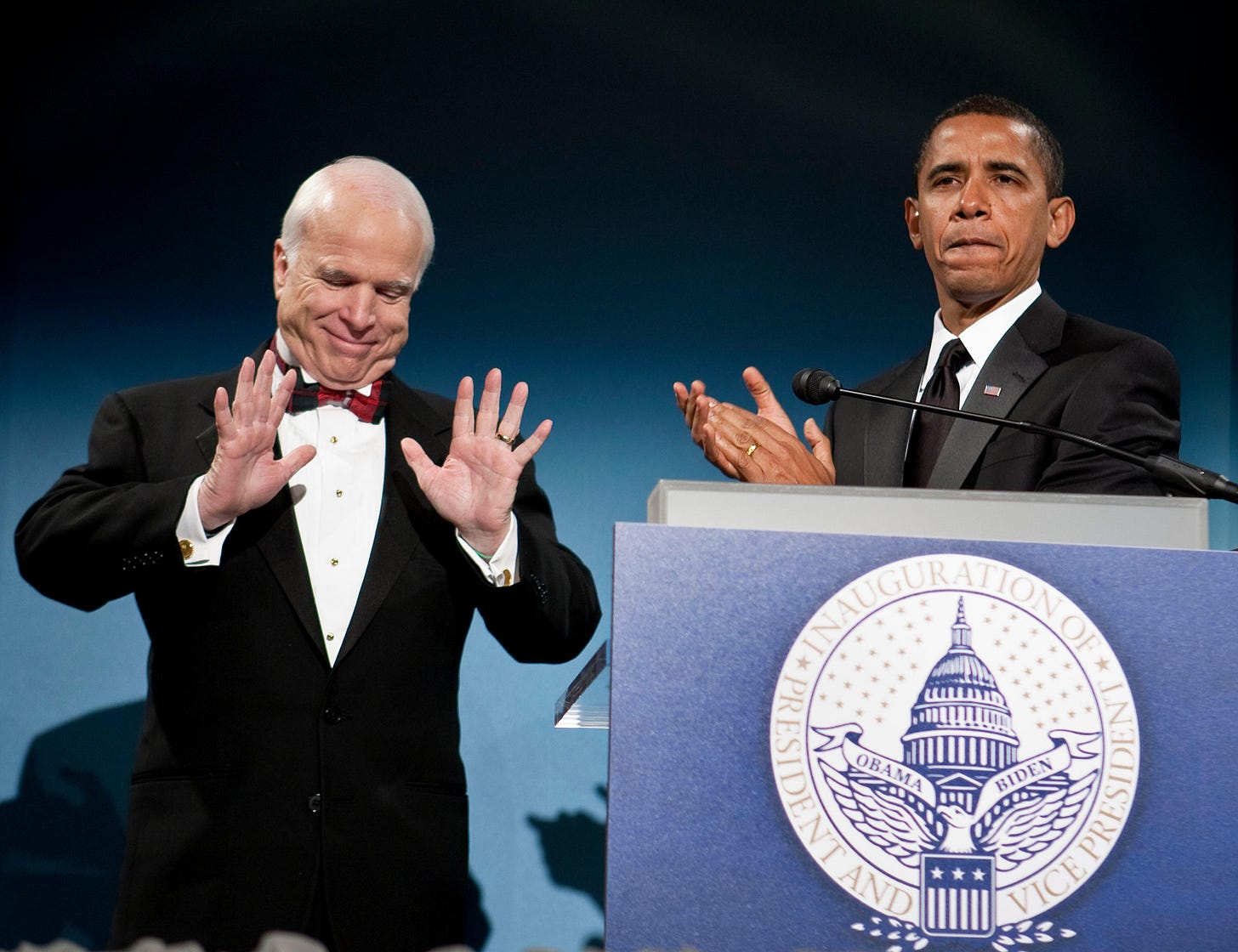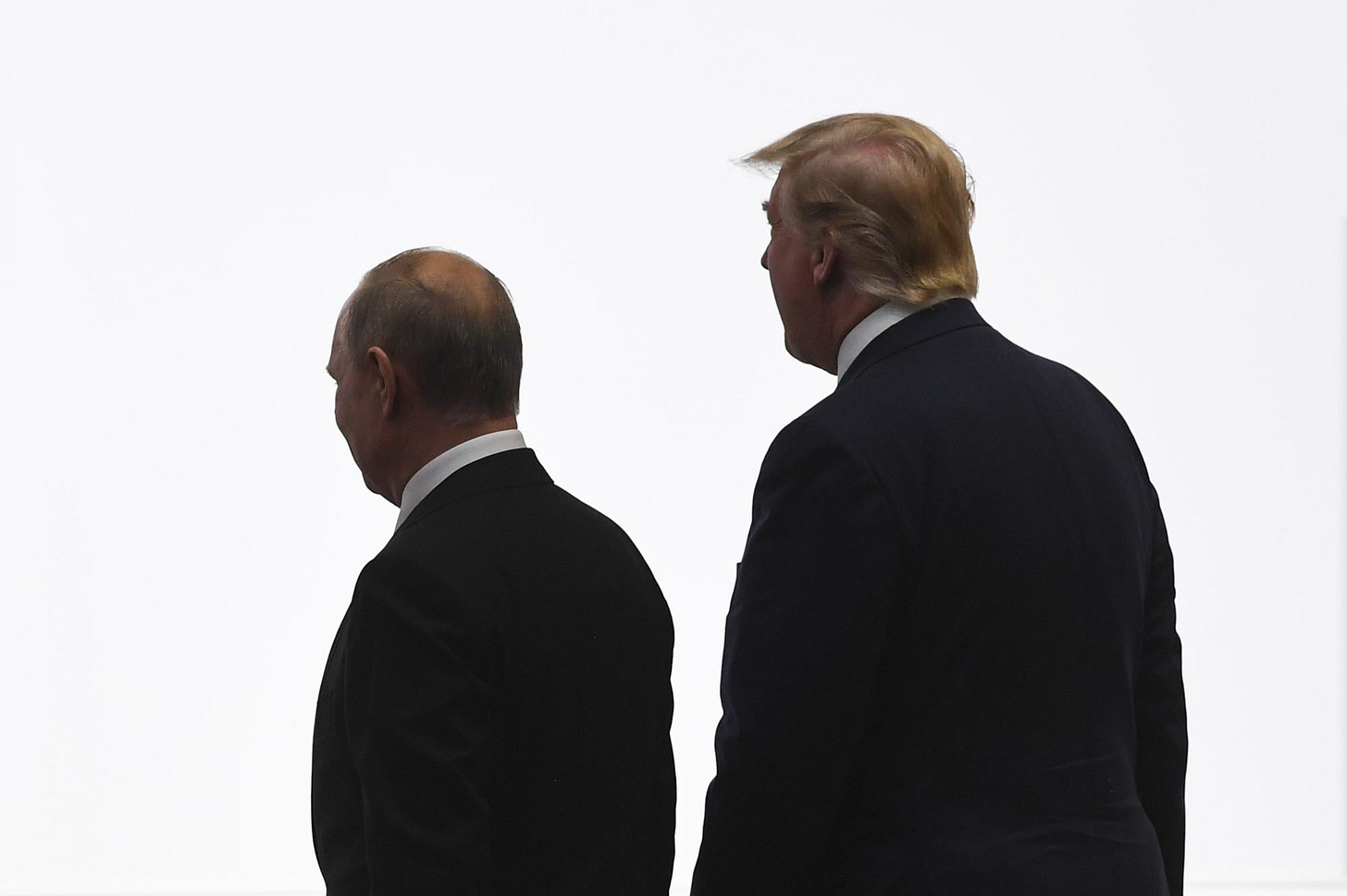In Defence of Democracy
Former Ambassador Alexandra Hall Hall reports back from the McCain Institute's annual Sedona Forum and the bi-partisan discussion of the threats posed by Russia, China and the return of Donald Trump
Originally published in the print edition of Byline Times
Last month, I attended the 10th annual Sedona Forum in Arizona, organised by the McCain Institute – an organisation founded by the late Senator John McCain to further his vision of values-driven foreign policy in support of democracy and freedom around the world.
During his life, McCain was a controversial figure, who seemed to inspire and frustrate his Senate colleagues in equal measure, because of his moral crusades, refusal to toe the party line, and tendency to criticise his own side almost as much as the opposition. He aspired to hold himself to high standards of integrity, yet would be the first to admit he frequently fell short – most notoriously when he became involved in a financial scandal early in his tenure, the so-called Keating Five affair. He also had a fiery temper.
Yet, he was the finest statesman I ever met. His back story was compelling, as the son and grandson of US admirals, respectively in command of the Pacific theatre during the Second World War and the Vietnam War. McCain, in his turn, became a ‘Top Gun’ navy pilot. During the Vietnam War he was shot down over Hanoi, confined for over five years, and repeatedly tortured. Nevertheless, he refused all Vietnamese offers to release him ahead of other prisoners, to avoid giving them a propaganda victory. Despite bearing permanent injuries from his imprisonment, McCain later championed efforts to restore diplomatic relations with Vietnam, becoming regarded by many Americans as a hero, and many Vietnamese as a friend.
I became a fan after observing his first presidential run in 2000 – a marvel of energy and candour, when he toured the country on his ‘Straight Talking Express’ bus, talking non-stop about his hopes, fears and dreams for America. (Disclosure: I later started dating his senior foreign policy advisor, now my husband, through whom I became part of the ‘McCainiac’ world myself).
His second presidential run, in 2008, when he became the Republican nominee, was a slog. But he never gave up. He also refused to be drawn into making dog-whistle racist slurs against his opponent, Barack Obama – even chiding one attendee at a campaign event for doing so.
Nor did McCain bear long-term grudges. His concession speech to Obama in 2016 was one of the most gracious in history. At his memorial service in 2018, Obama joked that McCain would have enjoyed having the last laugh, as his presidential rivals had to sit through everyone singing his praises during their eulogies.
I did not share all of McCain’s conservative views, and was horrified by his choice of Sarah Palin as his running mate in 2008 (a decision he also came to regret, and which he only made after officials advised him against his own preference, Democrat Senator Joe Lieberman). However, I deeply admired his sponsoring of campaign finance reform to regulate corporate money in the US political system; his years-long effort to pass bipartisan immigration reform; his opposition to the indefinite detention of terrorist suspects in Guantanamo Bay, and use of torture against them; his support for efforts to combat climate change; his championing of human rights defenders; and his opposition to Donald Trump’s degradation of the presidency, denigration of US allies, and cosying-up to foreign dictators.
Perhaps McCain’s most famous act came in July 2017, when he was already ailing with brain cancer. In a dramatic gesture reminiscent of a Roman emperor, he thumbed down a Republican effort to repeal Obama’s healthcare legislation, which had extended health insurance to millions of Americans. He felt that the closed-door, rushed process that had produced the repeal plans was not how the Senate should operate, saying “we must now return to the correct way of legislating and send the bill back to committee, hold hearings, receive input from both sides of the aisle, heed the recommendations of nation’s governors, and produce a bill that finally delivers affordable healthcare for the American people. We must do the hard work our citizens expect of us and deserve”.
It’s hard not to lament how far current political leaders have fallen from these standards – in the US and the UK.
McCain’s spirit still infuses every aspect of the Sedona Forum, which brings together politicians, foreign policy, intelligence and security experts, and human rights activists from around the world to brainstorm on current challenges. The attendance is always bipartisan, the tone collegiate, the quality of discussion superb.
This was the sixth forum I had attended, against a depressing domestic and global backdrop. Nevertheless, I still found it inspiring, as speakers expressed enduring faith in American democracy and its ability to lead the world.
While America had its flaws, it also had many assets, including strong alliances, and the ability to innovate, learn and adapt. America should avoid complacency or arrogance, but also not excessively talk itself down. It remained a force for good.
Last year, the focus was almost entirely on Ukraine, given the recent Russian invasion and the effectiveness of the Western response. This year, the debate shifted to the implications of the conflict for relations with China, which Senator Mitt Romney described as the most serious long-term geopolitical threat. It was vital to help Ukraine defeat Russia for its own sake. But, its strategic significance lay in the message sent to autocrats elsewhere, including about Western resolve to uphold the rules-based international order.
This was particularly pertinent given Chinese claims on Taiwan. Congressman Seth Moulton described it best: “Every day we want President Xi to wake up, look at what is happening in Ukraine, and think ‘not today’.” Asked whether Western support to Ukraine came at the expense of support for Taiwan, the Taiwanese Ambassador to the US argued it was the reverse: “Ukraine’s survival is Taiwan’s survival; their success is our success. International support is essential to affirm the credibility of the US and its allies.”
It was heartening to hear British Foreign Secretary, James Cleverly, give similar remarks at the Washington-based think tank, the Atlantic Council, a few days later. He said it was vital to give Ukraine the weapons it needed to defeat Russia, even at the risk of running down our own supplies.
“If we’re saving stuff up for a rainy day, this is the rainy day,” he said. He also drew the same linkages between Ukraine and Taiwan: “They are not different files. How we respond [in Ukraine] will be watched by others, to see our resolve, and staying power.”
These discussions conveyed a reassuring sense of Western solidarity. Nevertheless, challenges lie ahead, especially if Ukraine’s anticipated spring offensive fails to make meaningful headway, China makes stronger efforts to broker a peace deal in Ukraine, or Trump continues to be the Republican presidential front-runner.
On the first, Cleverly persuasively argued that “we need to recognise there might not be a simple, decisive breakthrough. We have to be realistic – it will be messy and scary, with escalating rhetoric from Putin. We need to remain steady, resolved, and prepared.” Western leaders also had to keep carrying their publics with them: “As a democracy, we have to be able to justify our actions and how we are spending money. It’s our job to make the case and we should rise to it.”
On the second, I doubt China can be an honest broker, for reasons of its geopolitical confrontation with the US. While China might usefully exert influence to prevent Putin from using nuclear weapons, it might also welcome the conflict dragging on, in order to suck up Western resources and attention.
Any deal which China mediates is likely to be tilted towards Russia. This would not just be unacceptable to the Ukrainians, who have lost so much blood and treasure defending their homeland, but could also divide the Western alliance, with some tempted to pressure Ukraine to accept terms, while others back Ukraine fighting on. Cleverly finessed this by saying he would welcome any intervention that might end the war “on a just and sustainable basis” – his subtext clearly being that he doubted China could achieve this.
The third issue, given Trump’s repeated refusal to express clear support for Ukraine, is perhaps the most dangerous. It’s an open invitation for Putin to stall for time. Even if Trump does not win, his views will influence many in his party, risking the Republican politicians at Sedona becoming increasingly out-of-step with their voters.
Alexandra Hall Hall is a former British diplomat with more than 30 years experience, with postings in Bangkok, Washington, Delhi, Bogota and Tbilisi. She resigned from the Foreign Office in December 2019 because she felt unable to represent the Government’s position on Brexit with integrity




